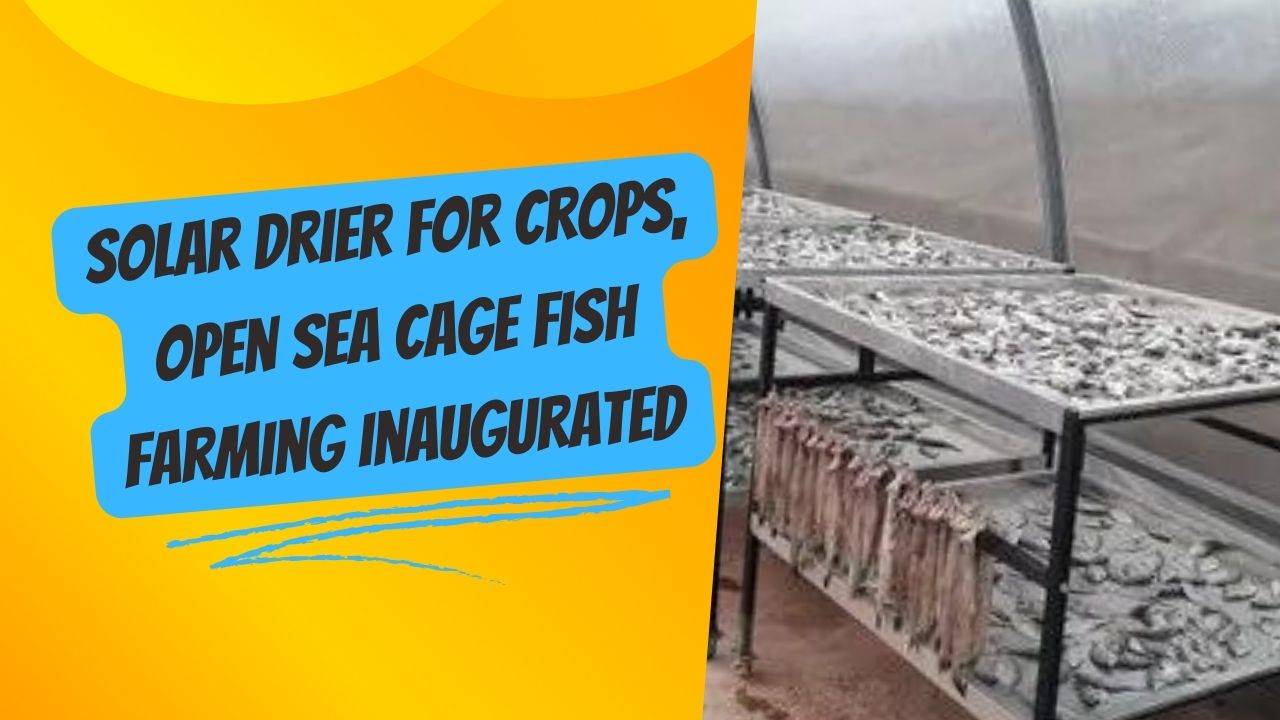
R. Sankar Narayanan, the Chief General Manager of NABARD, inaugurated a solar dryer in Sinnur near Vilaathikulam, benefiting rain-fed farmers engaged in the cultivation of chili and various horticultural crops.
This solar dryer covers an area of 400 square feet and was constructed at a cost of ₹3.05 lakh. It serves the crucial purpose of efficiently drying chili without contamination from dust and sand.
The funding for this project was provided by NABARD through its Sinnur watershed restoration program, which had a total budget of approximately ₹1.73 crore.
Narayanan emphasized that NABARD's primary focus is on funding development and restoration programs in regions grappling with severe water scarcity. As part of these efforts, farm ponds were established to collect and store rainwater during the monsoon season. This initiative has significantly improved rural livelihoods, as farmers have witnessed enhanced productivity.
Post-development, these water bodies are jointly managed by local watershed management committees to ensure long-term sustainability.
In celebration of the silver jubilee of Vidiyel Trust, which is responsible for implementing the Sinnur watershed development program and installing the solar dryer, Sankar Narayanan distributed country chickens, bio-fertilizers, and tree saplings to women self-help groups.
Additionally, he reviewed the progress of the Sinnur watershed restoration project and approved the formation of the 'Vidiyel Farm Producers Company Limited,' aimed at promoting cattle breeding among farmers in Sinnur and neighboring villages.
On another note, District Revenue Officer C. Ajay Srinivasan inaugurated open-sea cage fish farming in Tsunami Nagar and Pullaveli near Thoothukudi on Saturday, in the presence of Sankar Narayanan. This initiative, known as 'Integrated Multi-Tropic Aquaculture (IMTA) farming,' is a collaborative effort between NABARD and the Central Marine Fisheries Research Institute's Thoothukudi Research Station.
Under this program, beneficiary fishermen were trained in the cultivation of Asian Sea Bass in two floating sea cages. On the occasion, 1,000 fish seeds, mussel seeds, and seaweed seedlings were released into each cage.
The ICAR-CMFRI has been actively promoting sea cage farming of high-value marine fish like cobia since 2010. Furthermore, CMFRI has successfully developed and demonstrated IMTA technology in Palk Bay, generating additional revenue by integrating fish and seaweed cultivation into the aquaculture process.
















